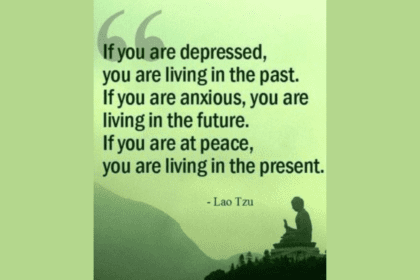In our previous segment we talked about the effects of quiet stress and how it slowly erodes our health. Forty-eight percent of adults say the reason they hide their stress is so not to worry family or friends, but the number of Americans reporting anxiety is triple the number from last year.
Here are more tips on how to manage some of the not-so-obvious symptoms of stress. See The Telltale Signs of Quiet Stress.
What Is Quiet Stress?
People under quiet stress will underreact vs. overreact to situations, and there’s a down side to keeping these stressful feelings hidden. There are no loud outbursts, no visible expressions of anger, and no signs of tension.
Quiet stress may sound benign, but it can be the source of many ailments that you may not readily associate with stress. If stress is chronic, it can quietly erode your health. Here are some of the quiet signs of stress.
Back Pain
When people experience back pain, they often instinctively assume it’s due to something they did (e.g., exercised improperly, carried or moved something too heavy) or to poor posture. Stress-related back pain is as serious and debilitating as back pain from an injury — especially is it lingers.
Under stress, your breathing rate may change and cause more tension. When your shoulders, upper back, neck, and jaw tense up, the tension will radiate throughout the full length of your back muscles and spine.
The Fixes:
Practice Five-Finger Breathing. This works better than just deep breathing because you engage multiple senses at the same time, which can be effective at crowding out the worrying thoughts.

Stretch slowly and stretch daily. Stretching exercises elongate the tense, shortened muscles.
NOTE: Back pain can also be a sign of a heart attack or an impending heart attack. If you are suffering from back pain, and it’s not the result of an injury, then evaluate your level of stress, and see your doctor.
Loss of Appetite
Being stressed can have two opposing effects. It can intensify your drive to eat due to the high levels of cortisol circulating in your bloodstream. On the flip side, when you’re under stress, you may not feel as hungry because you’re preoccupied with pressing issues, which distract you from the need to eat.
If this continues, a malnourished body will threaten your immune system. Your body will not be able to function properly with insufficient calories and nutrient-deficient food.
The Fix: Realize how important it is to eat, and if necessary, set alarms to remind yourself to eat AND drink at regular times of the day. Even a simple meal can make a tremendous difference and can keep your energy levels and your mood elevated.
Getting Sick More Often
Did you ever notice you get colds more often than others? According to an analysis of 27 studies, you’re more susceptible to catching a cold when under psychological stress. An underlying cause of the common cold is cortisol. Excess cortisol depresses your immune system making it more vulnerable to viruses.
The Fix: Incorporate some stress-relieving practices into your routine — massage, acupuncture, meditation — anything that makes you to SLOW down your breathing and slow down your pace.
![]() Karen’s Fit Tip: Address the stress. You can incorporate these “fixes”, but for long-lasting effects, try to resolve the source of the stress.
Karen’s Fit Tip: Address the stress. You can incorporate these “fixes”, but for long-lasting effects, try to resolve the source of the stress.





